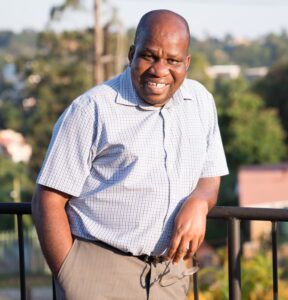Advent Devotional | Day 8: Jesus the Kinsman Redeemer
Jesu mudzikinuri wepedyo
Praise be to the Lord, who this day has not left you without a guardian- redeemer. May he become famous throughout Israel!
– Ruth 4:14
Every five years there is the potential advent of a “kinsman redeemer” in the Zimbabwean political landscape as the country goes into elections to choose a president as well as Parliamentary and Council representatives. All candidates promise to rescue the electorate from poverty and usher in a dispensation of peace, security, and prosperity. Oftentimes, they prove to be false or imperfect kinsman redeemers.
Like Zimbabwe, Israel for a long time waited for such a kinsman redeemer. Throughout history, God raised up many deliverers who pointed forward to the ultimate deliverer, Jesus Christ. In addition to the different deliverers and personalities of historical significance, there were also Jewish cultural practices whose enactment kept moving the story forward and reminding people of their need for redemption.
One such cultural practice was that of a kinsman redeemer, introduced in Leviticus and lived out by Boaz and Ruth. The kinsman redeemer was a male relative who had the responsibility to rescue a family member who was in trouble, distress or need. They would rescue the person or their property, depending on the situation (Leviticus 25:25–55).
Naomi and Ruth were women in distress. They had both lost their husbands and, as widows, had limited prospects to secure their future (Ruth 1). There was need for a kinsman redeemer to protect and provide for them. So Naomi coached Ruth on how to secure redemption (Ruth 3:1–6, 16–18). The behind- the-scenes, divine superintendence orchestrating the events unfolding Ruth 3–4 should not be underplayed! As the story unfolds, Ruth musters the courage and makes a petition: “Spread the corner of your garment over me, since you are a guardian-redeemer of our family” (Ruth 3:9). Boaz takes her request seriously and begins the process of redemption (Ruth 4:1–8), resulting in their marriage (Ruth 4:9–12) and the blessing of a son, Obed, who would take care of Ruth in old age (Ruth 4:13–17). What a redemption!
Here are some reflections from this story as we think of Jesus the kinsman redeemer represented by Boaz:
- The story shows how God works through the mundane, daily routines of rustic Jewish life and culture to achieve His redemptive purpose. We must be alert to divine activity in our context and partner with God as He redeems His world.
- Looking at the genealogy in Ruth 4:18–22, the writer points us back as far as Judah and forward to David. This tells us that God’s story of redemption is not static. It has a past, present, and future. We are part of a story bigger than our generation. We are in community with past, present, and future generations of the redeemed!
- The genealogy has both unworthy outsiders (Ruth) and unworthy insiders (Perez and David), suggesting that none of us qualifies ourselves through a work-based righteousness scheme. Rather, God, by His grace, picks us, qualifies us, and uses us!
- We must think about those who, like Ruth, are seen as unworthy outsiders. These include the poor, the downtrodden, immigrants, refugees, the disabled, tribal and racial minorities, and unreached people groups to name a few. We need to bring help to them in their places of trouble and distress and point them to the kinsman redeemer they desperately need. Like Ruth, they need to be sucked into the redemption story!
- Finally, we need to recognize the unregenerate who are part of our church membership and continually preach to remind them (and us!) of our need of a redeemer in Christ!
God bless you as you look back to the first Advent, look forward to the second Advent, and celebrate the work of our great kinsman redeemer!

Mukululi Ncube
Eswatini
Mukululi Ncube is a missionary originally from Zimbabwe who pastors at Mbabane Chapel in Eswatini. He also serves as the Movement Coordinator and Facilitator for Langham Preaching in Eswatini.